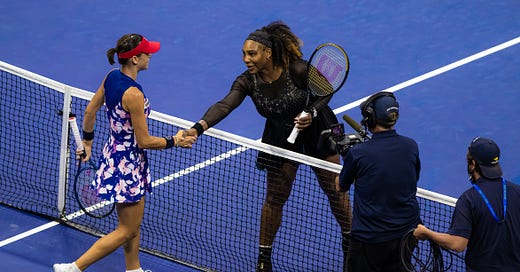Here is a sports question that fascinates me endlessly: What do you do when, through no fault of your own, fate has labeled you the villain? How do you handle it? When Jack Nicklaus was a young man, Arnold Palmer was at his zenith both as a player and as a personality. The devotion fans felt for Palmer was fantastic and unbreakable, and so they loathed …
© 2025 Joe Posnanski
Substack is the home for great culture



